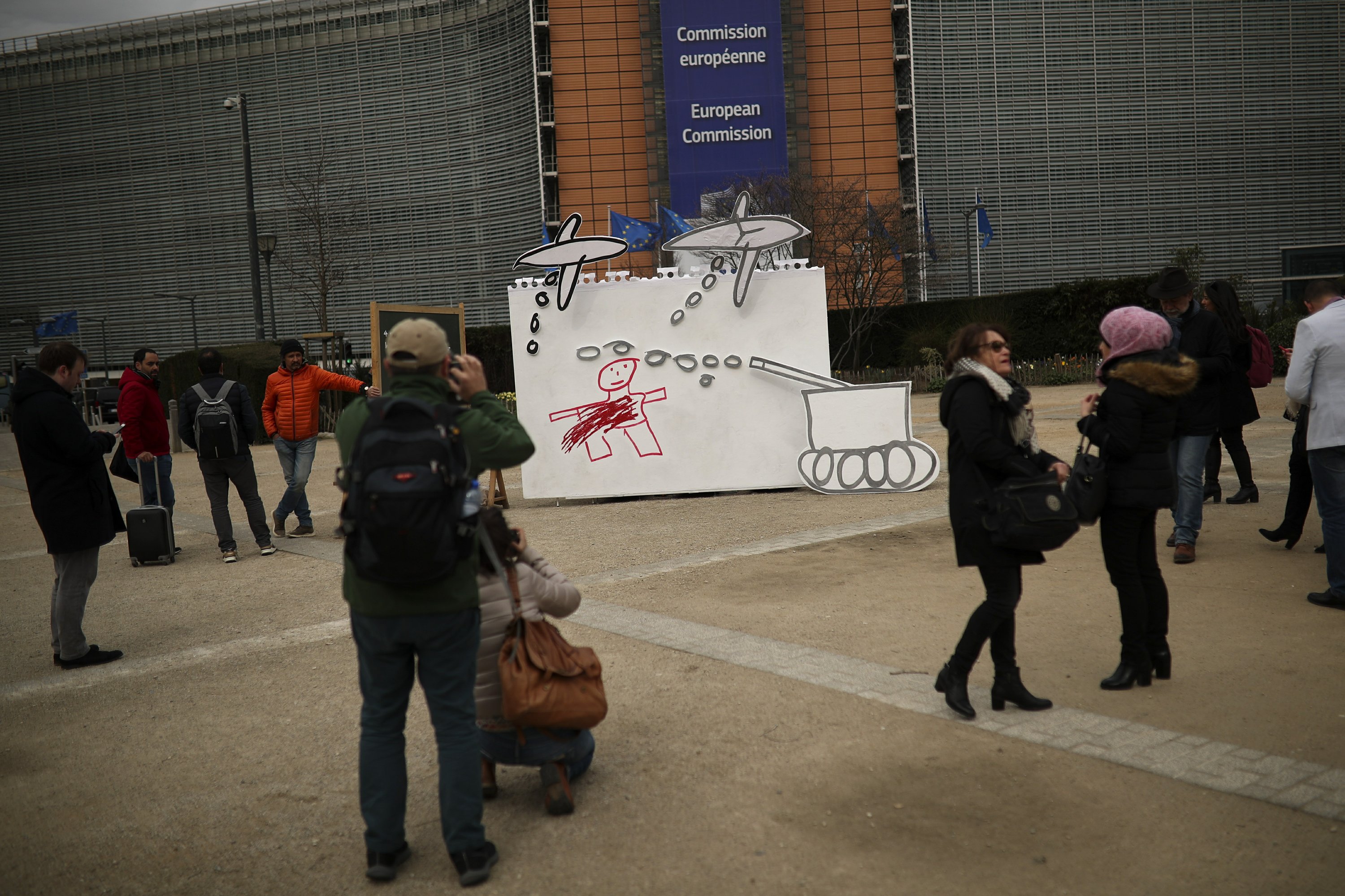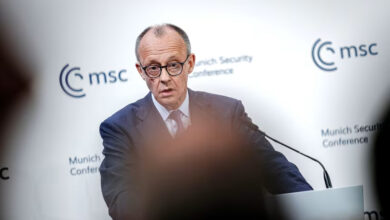
BRUSSELS (AP) — Aid organizations appealed Tuesday for funds to help Syria recover from an eight-year war that has driven almost 6 million people out of the country, as donors from nearly 85 countries readied for a pledging conference in Brussels.
Agencies, non-governmental organizations, and think tanks say the conflict, which has killed more than 400,000 people and sparked a refugee exodus that destabilized Syria’s neighbors and hit Europe, is far from over. Around 80 percent of people inside the country live in extreme poverty and refugees are reluctant to return, fearing violence, conscription or prison.
“Syrian refugees need trust that their return will be safe, secure and dignified,” UN High Commissioner for Refugees Filippo Grandi said during a weekend visit to Lebanon, which is struggling to cope with arrivals from over the border.
According to the Britain-based Syrian Observatory for Human Rights, some 100,000 people have been displaced since the last wave of violence began in mid-February, including tens of thousands from Khan Sheikhoun in northwest Syria, which has been repeatedly hit by government forces from the air and ground in recent weeks. It estimated that some 140 people, including 69 civilians, were killed over three weeks.
As the conflict enters its ninth year, about 11.7 million Syrians still depend on aid, more than 6 million have been displaced inside Syria and some 2 million children are out of school.
But donor fatigue is growing: Of around 3.5 billion euros ($3.9 billion) pledged last year, only around two thirds were funded.
Beyond providing aid, the European Union — the world’s biggest donor and host of Thursday’s conference — refuses to help rebuild the country until a political settlement has been reached.
“It’s a message of ‘you broke it, you own it,’” said Jean-Christophe Belliard, deputy secretary general of the EU’s External Action Service — essentially the bloc’s foreign office — in reference to Syrian President Bashar Assad and his backers.
The EU is hoping that the meeting can give impetus to stalled peace moves under U.N. auspices, on top of gathering humanitarian aid for Syria and for neighbors hosting refugees like Turkey, Lebanon and Jordan.
But some NGOs believe that its stance over rebuilding can be a serious obstacle to genuine aid efforts.
“All too often that reconstruction line is limiting what in every other aid context in the world is considered best practice in terms of how to provide humanitarian aid,” said Matthew Hemsley, Oxfam’s Syria policy and communications adviser.
“We’re not here to build large roads. We’re not here to build a brand-new water system for Syria. We’re not here to build a whole new school network. We’re here to make sure that children can be educated in a classroom that doesn’t have rain blowing into it from broken windows, that people don’t have dirty water flowing into their home,” he said.
Absent from the donor conference are Syrians themselves. No government or opposition representatives have been invited, but civil society group representatives in Brussels for the occasion are concerned that donor countries want to pressure Syrian refugees to return, despite the dangers and uncertainties they could face.
“We have to be very careful,” warned Rouba Mhaissen, director of Sawa for Development and Aid. “A lot of government delegations are here to sell return, especially from neighboring countries.”
By LORNE COOK
Image Credit: AP/Francisco Seco




